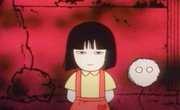Mabo's Tokyo Olympic Games: A look back at the excitement and thrills of the festival

Mabo's Tokyo Olympic Games - The appeal of historical animation and its background■Overview of the work"Mabo's Tokyo Olympic Games" is a Japanese animated film released in 1936. It was produced by Sato Film Productions and directed by Ginjiro Sato and Hiroji Chiba. Although it is a short film, consisting of only one episode and lasting 11 minutes, it is known as a symbol of Japanese animation technology and culture at the time. ■ Public InformationRelease media: Theatrical Original media: Anime Original release date: 1936 Running time: 11 minutes Number of episodes: 1 ■ Production staffDirector: Ginjiro Sato, Hiroji Chiba Production: Sato Film Production Music: Tetsuo Nishigaki Recording: Ei-on Laboratory Cast: Isoji Sekiya ■ StoryMarbo aims to win all amphibious and water sports at the Tokyo Olympics, and trains hard with the help of animals from the zoo as his coaches. He is coached by an ostrich in track events, an elephant, a kangaroo and a monkey in field events, a penguin in diving and a seal in swimming. On the day of the competition, Marbo drinks the "Hisshomaru" given to him by the animals and competes in all the events, winning brilliantly and raising the Japanese flag. This story occupies an important place in the history of Japanese animation films (Source: History of Japanese Animation Films, pp. 218-219). ■ Background and significance of the work1936 was the year that the Tokyo Olympics were scheduled to be held, and this animation was produced to commemorate that event. However, the Tokyo Olympics never actually took place, and were postponed to 1940, before finally being canceled due to the effects of World War II. This animation reflects the enthusiasm and hopes that Japan had at the time to host the Olympics. This work is also an example of the progress of Japanese animation technology. In the 1930s in Japan, animation was still a new medium and technical challenges continued. "Marbo's Tokyo Olympic Games" entertained audiences by depicting the animals' movements and expressions realistically. In particular, the scenes in which animals appear as coaches give a sense of the technical capabilities and creativity of the time. ■ Characters and SettingsThe main character, Mabo, is a brave boy who takes on all the Olympic sports. His character embodies the dreams and hopes of the Japanese people at that time. Animals appear as coaches specialized in each sport, and a wide variety of animals, including ostriches, elephants, kangaroos, monkeys, penguins, and seals, are featured. These characters are easy for children to relate to, and also contain educational elements. ■Music and SoundThe music was composed by Tetsuo Nishigaki and recorded by the Visual Sound Laboratory. A strong, bright melody was chosen to express the excitement of the Olympics at the time. The sound effects were also designed to enhance the realism of the animals' movements and the sports. The combination of these elements makes the work enjoyable not only for the eyes but also for the ears. ■ Evaluation and impact"Marbo's Tokyo Olympic Games" was highly praised as a Japanese animated film at the time. In particular, the realistic movements and expressions of the animals, as well as the story depicting the excitement of the Olympics, were well received by a wide range of people, from children to adults. This work can be said to be an example of the potential of Japanese animation to be accepted worldwide. This work also influenced later generations of animation. In particular, the use of animals as characters and sports-themed animations had a major impact on subsequent Japanese animation culture. "Marbo's Tokyo Olympic Games" is still loved by many people today as a work with such historical significance. ■ Recommendations and how to watch"Mabo's Tokyo Olympic Games" is a work that combines historical value with entertainment value. I highly recommend it to anyone interested in sports and animation. This work is important for understanding the Japanese animation technology and culture of that time, and by watching it you can gain a deeper understanding of its background and significance. Currently, you can watch it on DVD or online streaming services. It is also sometimes shown in movie theaters and at animation events, so it's a good idea to take advantage of those opportunities. Furthermore, you can learn about the background and behind-the-scenes stories of the works by reading related books and materials. ■ Related works and recommendation listAfter enjoying "Marbo's Tokyo Olympics," check out the following related works. These works are also sports and animal-themed animations, some of which have historical significance.
■ Summary"Marbo and the Tokyo Olympic Games" is a Japanese animated film released in 1936, and is a symbol of the technology and culture of the time. The story of Marbo and the animals who aim to compete in the Olympics has been accepted by a wide range of people, from children to adults, and has had a major impact on Japanese animation culture since then. By watching this film, you can enjoy both historical significance and entertainment value at the same time. Be sure to check out related works to gain a deeper understanding and enjoyment. |
>>: Review of "Megumi no Kenka": A deep look into the story of fierce battles and friendship
Recommend
The appeal and reputation of the Pichi High Baseball Club: A masterpiece anime depicting the passionate battles of youth
All-round evaluation and recommendation of Pichik...
"Devil May Cry" animation producer: I promise not to let "Star-Lord" participate in dubbing
Adi Shankar, producer of the Netflix Castlevania ...
The latest trailer of the animated film "Finding the Apprentice Witch" 20th anniversary commemorative new work
The 20th anniversary commemorative edition of the...
The production staff of the new animation "Incompetent Nana" under SAI is revealed. The director of Fairy Tail has joined
"Incompetent Nana", which is currently ...
Bio Hunter: Its Appeal and Evaluation: In-Depth Review
Bio Hunter - The dark fantasy world of Fujihiko H...
"Jurassic World 3" officially starts filming and is named. Will dinosaurs compete with humans for domination of the earth?
"Jurassic World 3" director Colin Trevo...
Jurassic World 3 will wrap up the Jurassic film series
Director Colin Trevorrow revealed that the upcomi...
Hundreds of photographers call for a ban on guns in filming due to murder
Previously, a major accident occurred on the set ...
The official sequel of Kamen Rider Saber is confirmed to be released in early 2022
The second generation of Reiwa Kamen Rider and th...
Looking forward to seeing you in the cinema: A list of Chinese-language films worth watching in 2020 (Part 1)
Since the beginning of 2020, there have been many...
"Joy of Life" and other online novel adaptations are popular, and China Literature's total revenue in 2019 reached 8.35 billion
Today (March 17), China's online literature g...
The spin-off manga "Uma Musume: Star Blossom" will begin serialization on April 10
Shueisha's Weekly YOUNG JUMP official APP You...
"Nezha: The Devil Child Comes into the World" extended its release for one month, and its box office hit the top three in Chinese film history
Recently, China Film released a notice that accor...
Rainbow Six live-action movie to be directed by John Wick director
John Wick director Chad Stahelski has been confir...
The film "The Division" will start shooting in 2022 and will be based on the game
Recently, Rawson Marshall Thurber, the director o...









